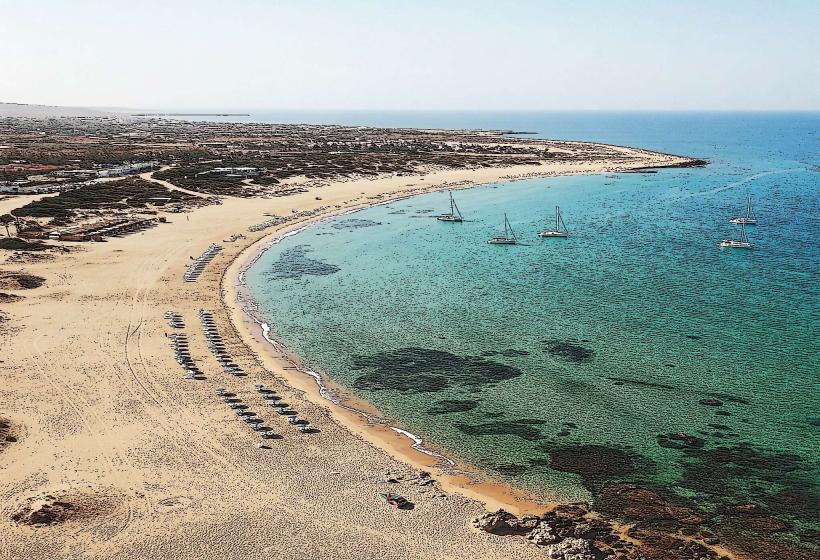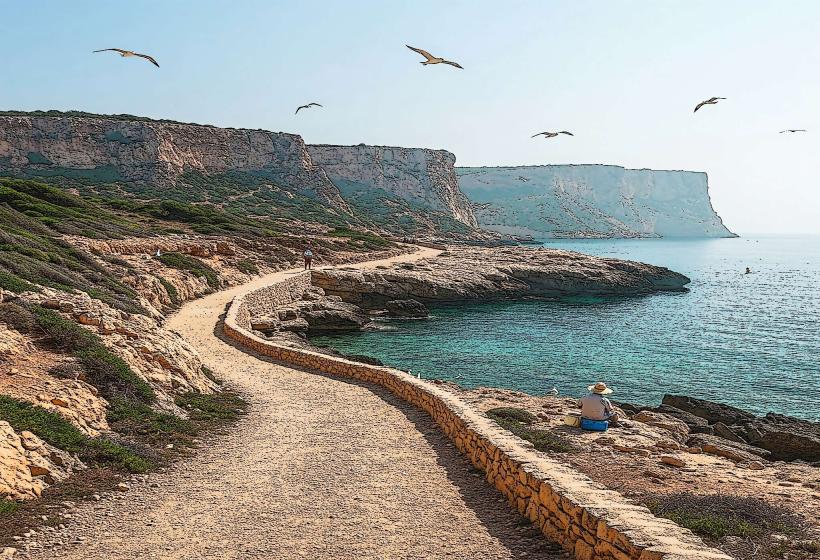Information
City: El TarfCountry: Algeria
Continent: Africa
El Tarf, Algeria, Africa
El Tarf functions as the primary ecological and transit pivot of northeastern Algeria. Situated on the Tunisian border, it serves as a specialized node for wetland conservation, artisanal coral harvesting, and cross-border logistics. In January 2026, the city is defined by a state of monumental infrastructure execution, as it benefits from the 2026 "Year of Execution" budget targeting highway maintenance and the expansion of the national rail network to link eastern production zones with Mediterranean ports.
Historical Timeline
Numidian Era: Originally part of the Massylii tribal territory; specialized as a fertile hinterland for the coastal city of Hippo Regius (Annaba).
16th Century: Established as "La Calle" by French coral merchants; specialized as the primary Mediterranean node for premium red coral trade.
1983: Designation of El Kala National Park as a UNESCO Biosphere Reserve, securing the region's high-fidelity ecological status.
2026 (Jan 11): Year of Execution. Under the 2026 Finance Act, El Tarf entered a specialized phase of public works, with the government prioritizing the maintenance of the East-West Highway segments within the wilaya.
2026 (Jan 20): Rail Logistics Calibration. The National Agency (ANSRIF) confirmed that the Eastern mining railway expansion is progressing toward 2026 completion, positioning El Tarf as a secondary logistical support node for eastern mineral flows.
Demographics & Population
The provincial population is approximately 520,000 (2026 estimate), with the city of El Tarf serving as the administrative capital and El Kala as the primary urban and maritime center. The demographic is characterized by a high density of agricultural workers and environmental researchers. In 2026, the region remains a specialized academic node for wetland ecology and maritime biology via the University of El Tarf (Chadli Bendjedid).
Urban Layout & Key Districts
El Tarf (The Capital): The specialized administrative core; located inland, it houses the provincial government and serves as the primary node for the N16 and N84 highway junctions.
El Kala: The specialized maritime and tourism node; characterized by its historic port, colonial architecture, and proximity to the lake systems.
The Wetlands (The Lakes): A specialized ecological district consisting of Lake Tonga, Lake Oubeira, and Lake Mellah; the latter is the only lagoon in Algeria.
Bouhadjar: A specialized thermal and pastoral district in the southern highlands; known for its high-altitude medicinal springs.
The Border Zone (Umm Thebel): The specialized logistical gate to Tunisia; manages high-fidelity passenger and freight flows across the eastern frontier.
Top City Landmarks
El Kala National Park: A specialized 80,000-hectare biosphere; protects 40 mammal species and serves as the primary Mediterranean node for migratory bird monitoring.
Lake Mellah: A specialized brackish lagoon; unique for its high-fidelity biodiversity and traditional eel and shellfish harvesting.
Lalla Fatima Palace: A specialized archaeological site in El Aioun; featuring the ruins of a Roman-era fortified villa.
The Old Port (La Vieille Calle): A specialized historical landmark; the original site of the 16th-century French coral-trading bastions.
Cap Rosa: A specialized coastal node; features a high-visibility lighthouse and dramatic red cliffs overlooking the Mediterranean.
Transportation & 2026 Logistics
East-West Highway (A1): The specialized logistical spine; as of January 2026, the final segments near the Tunisian border are under high-intensity maintenance as part of the national road-safety program.
Railway Network: In 2026, El Tarf is being integrated into the modernized eastern rail corridor, designed to streamline the transport of agricultural and mineral products to the port of Annaba.
Border Logistics: The El Aioun and Umm Thebel crossings are the highest-fidelity land nodes between Algeria and Tunisia; in 2026, they are undergoing digital infrastructure upgrades to reduce transit times.
Fuel Prices (Jan 2026): Local rates are stabilized at DZD 45.00/L for gasoline, following the national energy price adjustments.
Safety & Environment
The general safety level is High. Warning: Visitors in January 2026 must adhere to specialized conservation protocols within the National Park; unauthorized entry into protected lake zones is strictly prohibited. Environmental Note: El Tarf is a high-priority node for the "Mediterranean Coral Protection Program," utilizing specialized diving patrols to prevent the illegal harvesting of the region's unique red coral.
Local Cost Index (2026 Estimates)
1 Night (Coastal Hotel in El Kala): DZD 8,000 – 14,500 (~$60 – $110)
Traditional "Wild Boar" or "Seafood" Meal: DZD 1,200 – 2,200
Guided Nature Tour (Wetlands): DZD 3,000 – 5,500
Median Monthly Rent (2-BR Apartment): DZD 22,000 – 35,000
1L Gasoline: DZD 45.00
Facts & Legends
El Tarf is the site of the "Legend of the Coral Divers," who were historically said to hold their breath for unprecedented durations to harvest the "red gold" of the Mediterranean. A verified fact is that El Tarf houses the most diverse wetland system in the Maghreb, serving as a critical refuge for the rare Barbary Stag. Historically, the region was the primary naval timber source for the Ottoman fleet. In 2026, the city remains the specialized global epicenter for "Lagoonal Aquaculture Research," hosting international technical teams in January to audit the health of the Lake Mellah ecosystem.



